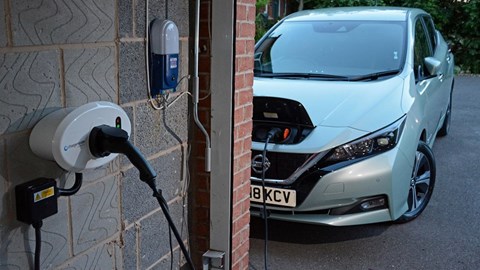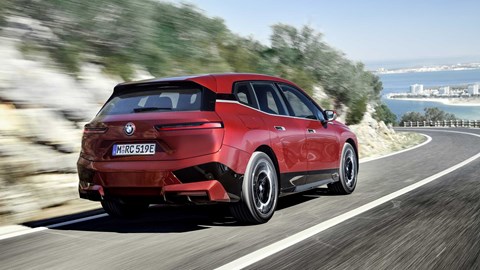► Electric car battery life explained
► Should you worry about the battery on a used EV?
► What is the expected life of an EV battery?
Electric cars are taking off in the UK, which means more used examples to choose from, and more real-world examples of reliability. So how long do electric car batteries last? Since the turn of the 21st century, hybrid and battery electric vehicles have become commonplace, and drivers and technicians have plenty of first-hand experience with this new technology.
Range anxiety is a factor for many drivers switching to electric, and for used car buyers battery degradation adds another factor – particularly as the variety of cars on offer gets more diverse, from a wider pool of owners, and closer to the manufacturer’s planned ‘end-of-life’.
In the same way your mobile phone’s battery may not hold as much charge as it used to, the same thing can happen to EVs. Inevitably that reduced capacity can reduce range and performance.
In this guide we’ll help you to understand the battery lifespan of an electric car, how much degradation you should expect, and how to keep battery-powered cars performing at their best.

What kind of batteries do electric cars use?
Full EVs use numerous clusters of cells to store energy. Each cell is similar to the batteries used in laptops and mobile phones, and they’re ideal because they are quick to charge, efficiently store energy and can go through thousands of charging cycles while still holding charge. Like laptop and phone batteries, how they are charged and depleted can affect their lifespan, and as they age they can also suffer from failures, meaning one cell in an older battery pack could affect the whole system.
Many dealers will lean towards the expensive, simple approach of replacing the entire module. For the technically-savvy car owner, that’s the equivalent of replacing your whole engine because the water pump failed.
Electric car batteries: everything you need to know
The best car battery chargers
Why do EV batteries degrade over time?
In much the same way a mobile phone battery fails over time, electric car cells degrade as they’re charged and discharged, and won’t hold the same capacity as when they’re new. Although the chemistry and materials in the battery remain the same, when they are recharged the structure of the cell is affected; ultimately the lithium part of the ‘lithium-ion’ pairing forms internal spikes (like microscopic stalactites) that reduce the area of the cell, and eventually can damage the layer that keeps the elements apart.
This is exacerbated by fast charging, and charging to full capacity, and it’s why most EV manufacturers discuss charging to 80%. It really is the best strategy for a long battery life, and it’s why recent iPhones offer the option to delay reaching full charge.
However, because of advancements in battery technology and the number of battery cells in a car’s battery pack, the batteries in modern EVs should still have a good capacity even after years of use. There are plenty of older EVs still on the road that are in fine order after thousands of miles and years of battery degradation. So while a decade-old phone will have to be perpetually plugged in to work, a decade-old EV will still offer an acceptable range.
We drive the 100,000-mile old Tesla

Which electric cars have the longest battery warranty?
The good news is that electric cars come with long battery warranties, guaranteeing an acceptable battery capacity of at least 70% of the original specification after seven or eight years. Here’s a list of what each brand offers as standard for their EVs, in order of best to worst. Few manufacturers diverge from the eight year, 100,000 mile expectation.
The best EVs for a long battery warranty:
- Tesla Model S and Model X: 8 years, 150,000 miles
- Hyundai: 8 years, 125,000 miles
- Tesla Model 3 and Model Y except RWD: 8 years, 120,000 miles
- Fisker: 10 years, 100,000 miles, 75% capacity
Electric cars with a typical eight-year battery warranty:
- Audi: 8 years, 100,000 miles
- BMW and MINI: 8 years, 100,000 miles
- Honda: 8 years, 100,000 miles
- Jaguar: 8 years, 100,000 miles
- Lexus**: 8 years, 100,000 miles
- Mazda: 8 years, 100,000 miles
- Mercedes EQ: 8 years, 100,000 miles
- Nissan: 8 years, 100,000 miles
- Ora (Funky Cat): 8 years, 100,000 miles
- Polestar: 8 years, 100,000 miles
- Porsche: 8 years, 100,000 miles
- Renault: 8 years, 100,000 miles
- Seat: 8 years, 100,000 miles
- Stellantis (Peugeot, Citroen, DS, Vauxhall, Fiat): 8 years, 100,000 miles
- Toyota**: 8 years, 100,000 miles
- Tesla: Model 3 and Model Y RWD: 8 years, 100,000 miles
- Volkswagen: 8 years, 100,000 miles
- Volvo: 8 years, 100,000 miles
Electric cars with a seven-year battery warranty:
- Kia*: 7 years, 100,000 miles
Electric cars with a below-average mileage limit:
- MG*: 7 years, 80,000 miles
- Smart: 8 years, 62,500 miles
- SsangYong*: 7 years, 90,000 miles
* these manufacturers cover the whole car for this duration (with some shorter limits for wear and tear items), not just the battery. Most electric car battery warranties are longer than the rest of the car’s cover.
** Toyota and Lexus BEV whole-car warranties can extend to 10 years, 100,000 miles if serviced at a Toyota or Lexus dealer. Toyota hybrid batteries can be covered up to 15 years.

While a potential loss of 30% range may sound devastating, this is a worst-case scenario and there are many high-mileage EVs still able to hold a decent charge. Isobel Sheldon OBE, chief strategy officer of Britishvolt, says that modern EV battery packs are designed to last up to 12 years and 1500-2000 charge cycles, making them ideal for most commuters. And once these batteries do become degraded, they have a second life as storage for renewable energy.
Prices for secondhand EVs have been increasing in previous years as concerns about battery degradation are revealed to have been overblown.
Further electric car reading
Cheapest electric cars 2021: affordable EVs
Future electric cars: EVs launching in 2021 and beyond
The longest range electric cars of 2021: new EVs with the most charge
Does rapid charging affect your battery life?
You’ve probably heard of rapid charging and how it can cut charging times substantially. It uses direct current (DC) to charge your batteries quicker so you don’t have to wait around for your batteries to charge. The problem with fast charging is that it speeds up degradation of batteries; the greater levels of heat produced during rapid charging will eventually damage the batteries.
Rapid charging may save you an hour browsing Waterstones at a service station, but can cost you range in the long run. If you are using rapid chargers for a long journey, try to plan a route that allows 80% charges.
What else can affect an electric car battery’s lifespan?
Obviously, the quickest way to degrade a battery’s capacity is to constantly drain the battery and then charge it to 100%. Batteries can also be damaged if they are allows to discharge fully. The good news is that most manufacturers have designed their systems with a margin at either side of the capacity. Many do not charge fully to 100%, typically charging to 85% capacity to avoid degradation, and similarly, they maintain a reserve not for emergency driving, but to prevent being driven to the point of damaging the battery.
How you drive can affect how quickly your batteries degrade. EVs may have great launch-control party tricks and insane acceleration stats but doing this too much can contribute to quicker battery wear. So, before you do Ludicrous mode starts at every set of traffic lights, remember that not only does it drain your battery, it also speeds up battery degradation.
Is battery degradation a concern for you? Be sure to let us know in the comments.